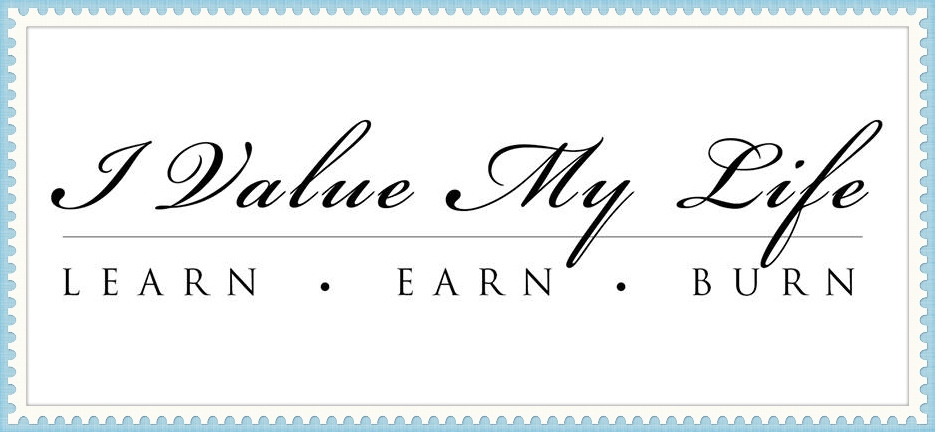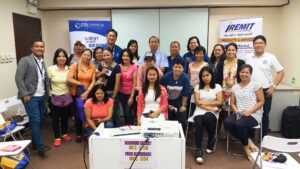Results of The Standard & Poor’s Ratings Services Global Financial Literacy Survey (S&P Global FinLit Survey), conducted in December 2015, reflected that only 31% of the total global adult population have an idea on how to handle money. The solution then was financial literacy. Five years later, as COVID-19 shakes every adult’s financial capacity, shouldn’t we have aimed for financial resilience?
What is the difference between financial literacy and financial resilience?
Financial literacy is a term that envelopes an individual’s knowledge, set of skills, and actual capacity concerning financial management. How one allocates it to its full potential, both as a consumer and as an investor, for long-term financial security is its main objective.
Financial resilience, a state of having a safety net available as a means to cope up when a financial shortfall takes place. It is reflective of savings and investment based on one’s behaviour towards long-term ability when budgeting and staying disciplined when it comes to spending habits. It is yet, just a part of the whole financial literacy, but an important one. Consider it as its skeletal system. Muscles will not take form if not for the bones, right?
Whether it’s about learning ways on how to gain and sustain control over money handling, or which opportunities are worth seizing through calculated risks, both work hand-in-hand. Therefore, considering only one for its significance bring no assured favourable outcome for anybody without acknowledging the other.
The survey gauge financial literacy based on these four generalized capacities:
-
a respondent’s knowledge of compounding interest;
-
understanding interest rates – how they are calculated and imposed;
-
understanding inflation;
-
and diversifying risks
Results showed that only one in every three respondents is considered financially literate. While the interpretations, findings, and conclusions are pure of the authors’, it aimed to raise awareness globally. In collaboration with people in the academe, regulators, businesses, creators of policies, and associations and organizations that deem it imperative, it was conducted to inform and motivate those who are in position and who has an actual platform to educate in general.
As mentioned, a third, only, were willing to apply what they have learned and sustain the actual practices.
Here we are now in 2020. Challenges left and right upon us in which the unemployment rate is still on the rise. Addressing these pursuits, could a push for global financial literacy and resilience have helped ease what is slowly killing today’s economy?
COVID’s impact on everybody’s finances
You life shifts one way or another, whether you’re infected with COVID or not. You will have to deal with costs incurred from hospitalization, treatment, then recovery. Added to that are the emotionally disturbing restrictions that employers size them up with. As for how extensive it could get, it diminishes one’s confidence down the drain.
Governance had to run by policies affecting retail, food and beverage, and entertainment extensively. It crushed other hard-working individuals when only essential workers and those that work in emergency facilities were the only ones allowed to earn the same income when the pandemic hit. Essential workers are those who work in education, logistics, government offices, and emergency facilities. Community workers such as those assigned in healthcare, the policemen, and firemen remained on the job too. People that work in the supermarkets and wet markets completed the essential list. This indented businesses big time and people’s self-esteem continuously diminishes.

What many thought would have been three months of laying low were wronged. Adjustments happened as reactionary business measures to cope up with temporary closures, arrangements involving working from home, and extended travel bans adjustments. Last year, November 19 was how it began before the onset in December at Wuhan, China of the first cluster tested positive for SARS-CoV-2. And now December is here once again and there seems to be not much of a change except for flag-carriers, theme parks, schools, and businesses closing down, and laying off more employees.
The Ultimate Dilemma
Unemployment is the state in which an adult is physically capable to work and wants to do so, but can’t find one. The whole world seemed to be holding on to what they have as reserves. May it be their savings, investments, government allowances, or passive income, it all boils down to, were they financially literate and resilient enough to stay afloat during this pandemic?
Data from then compared to now
Lately, businesses benefit a lot from data monitoring. It helps them flourish. There’s a lot to learn in doing so in terms of man’s behaviour towards different kinds of products, events, and services that funnel to one word that could envelop factors altogether, consumerism. When you can understand their response to a particular commodity, you’re more likely to predict how they are towards handling money.
From the survey’s collaborative efforts to fill in the knowledge gaps through sound policies, was it able to shape one’s financial well-being to something that will be favourable in times of need? Meaning, were these efforts able to prepare them, now that the most challenging times are upon us?

While it doesn’t represent any bank’s view, people’s economic participation depends on their ability to spend. Having money eases tension. The economists advise these facts to the government to act upon. Hence, it distributed subsidies to people to survive.
Some governments aided businesses, both big and small. An effort done to keep employees in their company while some prohibited laying off of workers. While discretion is upon small and private companies for whether wages would be adjusted or cut amongst their employees, the government, later on, did not tolerate such occurrence. But the question still stands. Could global financial literacy prevent the effects of unemployment? Would making it available, say, in the curriculum, or as free service, do, much of a difference?
Lesson learned
As a Filipino, I am very much aware that money talk is a taboo in our culture. Discuss salary and they will feel electrocuted. Or, if asked how much savings they have made and how, or if they are faithfully offloading to a 401 (k). One, single mentality that runs in each Filipino family is the culprit. As soon as they receive their salary, spending comes first before saving. And, instead of reversing it to work favourably, whatever is left is what gets saved. Logically, that’s why savings also becomes the slowest to earn gains.
Such events appoint sons and daughters to be instant providers for their parents and everybody else. It gets divided to so many people instead of having their income allotted on rearing their own families. I might… or let me rephrase. I will get bashed in putting this into perspective. Objectively, this is what happens, and it is what’s formed into a culture.
The (Organisation for Economic Co-operation and Development) OECD/INFE (International Network on Financial Education)’s 2020 International Survey of Adult Financial Literacy has its own interpretations. It reflected that Hong Kong is the most financially literate amongst the participating countries. With the highest average score of 14.8 out of 21 (based on the perfect score used in the OECD/INFE 2018 Toolkit), the 1002 respondents are capable of managing their finances favourably.
Reading and analyzing data like these makes one realize and learn about a location’s advantage concerning financial security. Genetic formation and environmental factors hone our personalities, reflected by our behaviour and reaction to things, events, and knowledge. Our geographical location just happened to be mindful on how to handle money which could be a good start in weaving shall we say, a financial quilt, instead of a financial blanket.
In 2019, Robocash Group surveyed its online customers, and it reflected a significant increase amongst financially literate Filipinos. Also, its results say neither quality education, nor stable income, secures one’s personal budget from lapses. There is a majority of respondents who are or have finished college/university level with 74% and an employed population, 78% in total, to back that up. There’s also another 10% to add up to that who own their own business. Surprisingly, almost all respondents experience a lack of money, at least occasionally, as reflected by the survey.
Considering a fourth of the entire Philippine respondents, having economic education, or have had to experience working there, an estimated 3 out of 10 is already practising financial literacy can be justified. More or less, this amount of people comprise 30-31% of the financially literate population.
Respondents that answered the survey online leave a grey area. It’s not fair to consider that there was an increase in the number of financially literate Filipinos’ being 25% reflected upon by Standard & Poor’s (S&P’s) Global Financially Literate Survey, dated December 2015.
The Takeaway

While I am a resident of Hong Kong, I am a Filipino from deep within. I was once an OFW. I experienced moments of money shortages because of wasting it on material things or sending it home (on demand). Mr Edward Lee opened multiple minds to financial literacy when he visited Hong Kong. He came to encourage the OFW’s here in Hong Kong to start investing.
Out of curiosity, one thing led to another. I was able to see opportunities and met a lot of financial advocates. I may not have reached the clouds yet. But, I want to use this platform to encourage you to pay yourself first. Floi Wycoco advised this when he paid a visit here in Hong Kong too to spread financial literacy. A gist of what he went through in terms of finances spoke of hope. I learned a lot from him.
With COVID-19 continuously hitting us all, find a way to save up still. Look for opportunities that will earn you passive income. Spend your money wisely. Avoid reckless expenditures. Be watchful of opportunities. As of right now, there are a lot of affordable mutual funds, stocks, bonds that you can start investing upon. Look for commodities in the stock market, being at its most affordable prices. Study them while you are on standby to work at home. Make your time worthwhile.
If you haven’t begun, start learning. Stop thinking that you will, one day. Make it happen by marking this as your Day 1.

